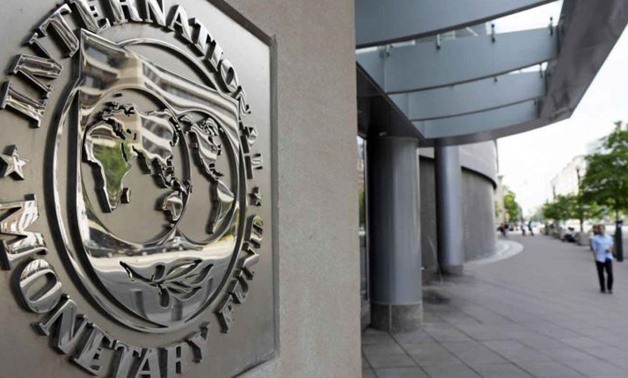
FILE- The International Monetary Fund (IMF)
CAIRO – 18 May 2018: The International Monetary Fund’s (IMF) delegation to Egypt announced that it has reached a staff-level agreement on the third review of Egypt’s economic reform program after a 16-day visit to Cairo.
The IMF issued a statement on Thursday that the staff-level agreement is subject to approval by the IMF’s Executive Board, adding that the completion of this review means the payment of a further $2 billion, bringing total disbursements under the program to $8 billion of a $12 billion loan agreement. Egypt has received the third tranche of the loan in December 2017.
The statement noted that “Egypt has begun to reap the benefits of its ambitious and politically difficult economic reform program. While the process has required sacrifices in the short-term, the reforms were critical to lay the foundation for strong and sustained growth that will improve living standards for all Egyptians.”
“Egypt’s growth has continued to accelerate during 2017/18, rising to 5.2 percent in the first half of the year from 4.2 percent in 2016/17. The current account deficit has also declined sharply, reflecting the recovery in tourism and strong growth in remittances, while improved investor confidence has continued to support portfolio inflows. In addition, gross international reserves rose to $44 billion by end-April, equal to 7 months of imports,” the statement read.
The delegation pointed out that Egypt’s annual inflation has declined to about 13 percent in April compared to 33 percent in mid-2016. They added that the country’s budget for 2018/19 targets a primary surplus of 2 percent of GDP, which would keep public debt on a firmly downward path.
The IMF delegation expressed its gratitude to the Egyptian authorities and the technical teams in the Central Bank of Egypt (CBE) and the ministry of finance for "their openness, candid discussions, and hospitality" during the team’s visit.
Egypt embarked on a bold economic reform program in 2014 that includes cutting energy subsidies and introducing new taxes to cut the budget deficit.
It floated its local currency in November 2016, after which it clinched a $12 billion loan from the IMF. Foreign reserves have been increasing since then. Reserves were only $19.041 billion at the end of October 2016.
Foreign currencies’ balance in Egypt’s international reserves increased to $40.5 billion in April, up from $39 billion in March, increasing by LE 23 billion in one month, according to data from the CBE.
Egypt’s foreign reserves reached $44.03 billion in April for the first time in history, compared to $42.61 billion at the end of March, according to the CBE.
The reserves are expected to further grow over the coming two years to reach $50 billion, banking sources said Wednesday.
They said that the reserves will be buoyed by tourism revenues, Egypt’s Eurobonds issuance, foreign direct investments and the savings from natural gas imports.
Egypt imports goods with an average of $5 billion monthly, meaning that the current reserves will cover around eight months of imports.
The international reserves in Egypt consist of a basket of five main currencies, namely, U.S. Dollar, Pound Sterling, Euro, Japanese Yen and Chinese Yuan.

Comments
Leave a Comment